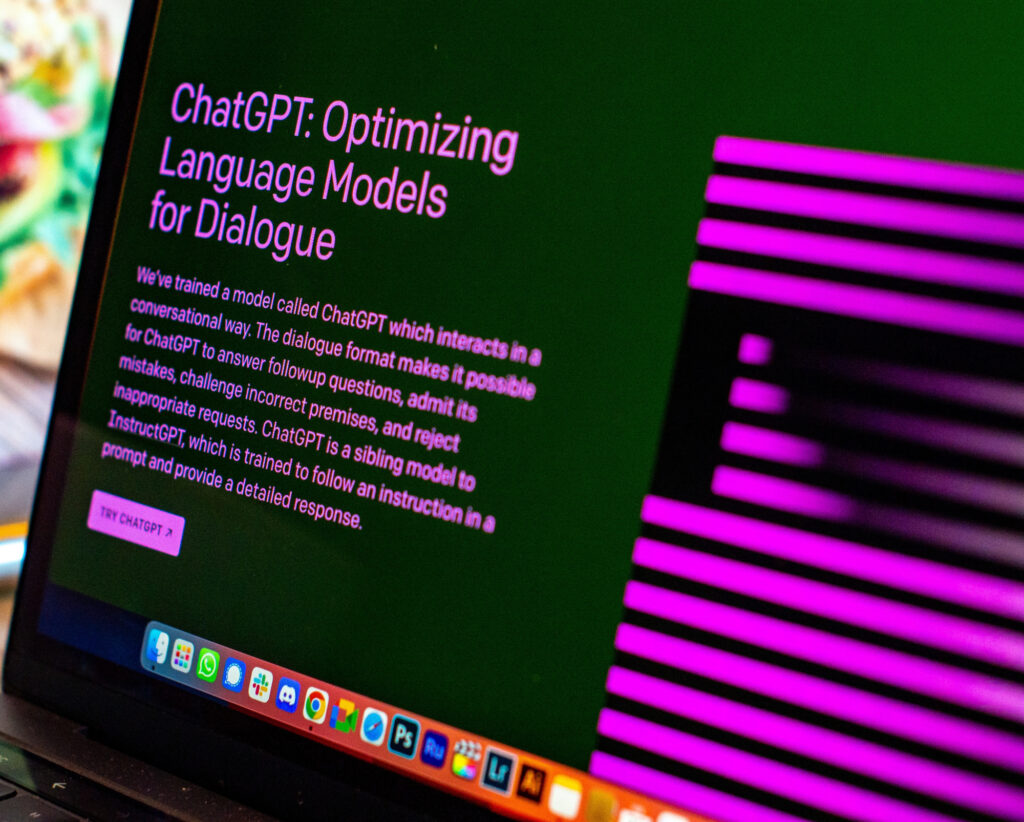We round up the latest AI news from a business and marketing perspective so you don’t have to – and yes, this was written by a human. But then, that is exactly what a chatbot would say…
Businesses and their marketing arms are among the biggest adopters of AI technology, which is unsurprising when you consider the key benefits of the technology.
Automating and optimising routine tasks and processes, especially when it comes to massive datasets, gaining insight into customer behaviour and engaging with them 24/7 through chatbots and natural language processing are three reasons why Statista predict the market for AI will be worth more than 107.5 billion by 2028.
Last year, the Department for Digital, Culture, Media & Sport (DCMS) found 15% of UK businesses have adopted at least one AI technology, which translates to 432,000 companies; the accepted AI technology covered machine learning, natural language processing and generation, computer vision and image processing/generation, data management and analysis, and hardware.
It was similarly projected that by 2025, that 15% figure will rise to 23% and by 2040, 1.3 million businesses would be using AI technology.
Story 1: AI to alter tasks in over 80% of jobs
According to a new paper from OpenAI, OpenResearch, and the University of Pennsylvania, jobs as we know them are destined to be altered dramatically by AI technology.
The research specifically explored how GPT (generative pre-trained Transformer) – the model allowing computers to respond with human-like text, including question answering, summarisation and translation – would impact all occupations currently run by humans.
OpenAI’s Tyna Eloundou concluded: “Our findings indicate that approximately 80% of the US workforce could have at least 10% of their work tasks affected by the introduction of GPTs, while around 19% of workers may see at least 50% of their tasks impacted.”
Story 2: Researchers name the six main challenges of AI
We stay in America – where else? – for more ominous research into AI technology, this time focusing on six implications of it and how we respond to it as a society.
If you have read the Isaac Asimov book I, Robot or seen the Will Smith film of the same name, then this will all seem rather familiar, as AI’s subservience to human well-being and values are key.
Privacy and ethics also make an appearance, but the study is perhaps summarised best from the concluding line “Humans must maintain complete control over and responsibility for the behaviour and outcomes of AI systems.”
Story 3: Elon Musk and Steve Wozniak call for pause in AI development
As indicated in the previous two stories, AI technology, and in particular GPT, is all the rage across the media and in boardrooms, and it would appear some prominent technologists are not overly happy at the rapid progress.
In an open letter, Musk, Wozniak et al are calling on a six-month hiatus for powerful AI development in order to fully investigate any potential dire consequences to humanity. In particular, the open letter poses a number of ethical questions such as “Should we automate away all the jobs, including the fulfilling ones? Should we develop nonhuman minds that might eventually outnumber, outsmart, obsolete and replace us? Should we risk loss of control of our civilization?”
Calling for full safety regulations and independent governance outside of tech companies sounds a wholly sensible approach, until you realise which side of the line Musk and others may see themselves.

